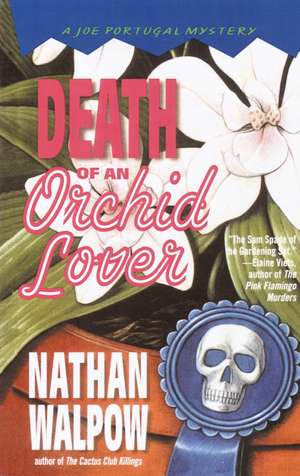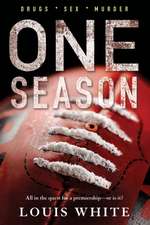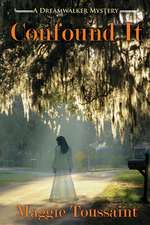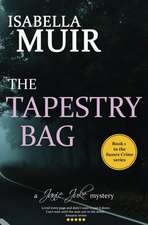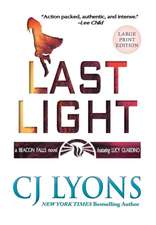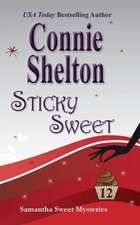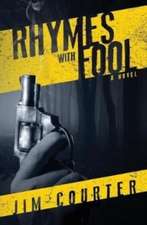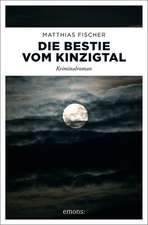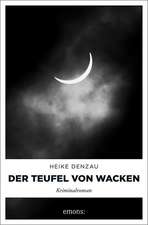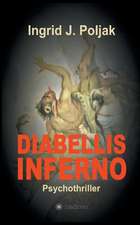Death of an Orchid Lover
Autor Nathan Walpowen Limba Engleză Paperback – 30 sep 1998
L.A. actor Joe Portugal just wants to keep the mealybugs off his cacti, give a little boost to his love life, and maybe make a few commercials along the way. And with a small acting role nailed down, Joe has every reason to mind his own business. But he doesn't. That's because a man who loved orchids has been found dead. And so has a woman who asked for Joe's help.
Never one to walk away from a challenge, Joe is plunging into a world unlike any he's seen before--the frenetic, highly competitive world of the orchid enthusiast. And suddenly Joe Portugal--actor, cactus lover, reluctant sleuth--is discovering that solving murder cases among the flora, fauna, and fanatics who thrive in L.A. isn't just a hobby, it's his true calling...especially since a killer has already come calling on him....
Includes The Joe Portugal Guide to Orchids.
From the Paperback edition.
Preț: 150.63 lei
Nou
Puncte Express: 226
Preț estimativ în valută:
28.82€ • 30.09$ • 23.85£
28.82€ • 30.09$ • 23.85£
Carte tipărită la comandă
Livrare economică 31 martie-07 aprilie
Preluare comenzi: 021 569.72.76
Specificații
ISBN-13: 9780440613855
ISBN-10: 044061385X
Pagini: 320
Dimensiuni: 140 x 216 x 18 mm
Greutate: 0.41 kg
Editura: DELTA
ISBN-10: 044061385X
Pagini: 320
Dimensiuni: 140 x 216 x 18 mm
Greutate: 0.41 kg
Editura: DELTA
Notă biografică
Nathan Walpow has been writing since 1992. Before that he had ten years of experience as an actor, working on the stage and on television shows such as Moonlighting, and he is a five-time undefeated Jeopardy! champion. He is also the author of The Cactus Club Killings, the debut novel in the Joe Portugal mystery series.
From the Paperback edition.
From the Paperback edition.
Extras
The scent evoked memories of my father at the kitchen counter with a hammer and a brown hairy thing.
"Coconut," Gina said. "What smells like coconut?"
The guy who looked like Humpty Dumpty overheard her. He snatched a potful of plant off a table and rushed over. It was a mass of long skinny leaves erupting from bulblike bases. Its flowers, maroon and yellow and about an inch across, resembled old-fashioned airplane propellers with spotted tongues.
He stuck the thing in Gina's face. "Maxillaria tenuifolia," he said.
"Very nice," she said. "Would you please get it out of my nose?"
Humpty's forehead creased as he considered his faux pas. He pulled the plant back, cradling it against his substantial gut. "I only wanted you to enjoy the fullness of its fragrance."
"Which she couldn't do with leaves in her nostrils," said Sam Oliver.
We were at the Palisades Orchid Society's spring social. Throughout the spacious house overlooking Mulholland Drive, people darted from plant to plant, uttering "oohs" and "ahs" as they alit on one orchid or another. There were plenty for them to alight on. A pot or two on each table, a bunch on shelves near the windows and sliding glass doors. In a corner at least a hundred miniature plants grew under lights on an antique rack.
Why we were there was Sam, the goateed elder statesman of the Culver City Cactus Club. A friend of his was hosting the event and had insisted he come. Sam--who wasn't particularly into orchids--had dragged me along. I, in turn, had dragged Gina.
I took the plant from Humpty. "Is this thing an orchid?"
His eyes flitted from me to Gina to Sam and back to me again. Then, as plant people are apt to do, he spewed. "It is indeed. Not being orchidists, you probably think orchids all resemble the corsages teenagers wear to proms. But there's an infinite variety. There are large orchids, small orchids, white orchids, red orchids, orchids of every hue. Except black. There are no black orchids. Not true black, anyway. Oh, some of your growers say they've created a black orchid, but it isn't a true black, just as there isn't a truly black rose." He took back the plant, brought it to his nose, took a big whiff. "If you like scented plants you might consider Oncidium Sharry Baby, with a chocolate fragrance. And of course vanilla comes from an orchid, and--but I'm forgetting my manners." He reached a pudgy hand over to me. "Albert Oberg."
"Our host," Sam said.
I took the hand. Albert surprised me with a solid grip. I'd expected a mackerel. "I'm Joe Portugal," I said.
"Gina Vela," said Gina.
Albert looked to be around sixty, though I suspected his chubby face was hiding a few years. His features were slightly too close together, accentuating his resemblance to one of those stuffed pantyhose dolls. His head sprouted an incongruous mushroom of luxurious blond hair. He was tall as well as round, several inches more than my five-ten, and he had one of the most impressive stomachs I'd ever seen. It wasn't like a beer belly, suddenly erupting somewhere south of his nipples and hanging off him like he was about due for a cesarean. Instead, it slowly rose just below his shoulders, climbing smoothly to its full rotundity and tapering off equally gracefully, eventually beveling into his stick legs. He didn't seem to have any room for genitals, but with looks like his, he probably didn't need them very often.
To his credit, he wasn't one of those fat guys who wear size 34 pants by slinging them below their guts. His belt threaded directly across his huge expanse of stomach like a pipeline traversing the Alaskan wilderness. The pants were wide-wale corduroys. A herringbone sport jacket over a pale yellow dress shirt completed the picture.
"Well, Albert," I said. "I'm sure these are all fine orchids, and I'm sure there's a lot of interesting things I could learn about them, but I'm more of a succulent kind of guy."
"Succulents?" He said the word like it was an expletive, like I'd told him I collected Nazi war helmets or Charles Manson memorabilia. "Succulents?" He turned to Sam, received a dirty look, came back to me. "What is it about those spiny things that makes them so attractive to some people?"
"We've had this conversation a million times," Sam said.
"So we have. Well. Come along, Sam, I want to show you my new eulophia."
Sam turned to me. "Coming?"
I shook my head. "I've seen enough eulophias for a while."
The two of them wandered off. "What's a eulophia?" Gina asked.
"I have no idea. Come on, let's explore."
We walked into the living room, where a group had gathered around a big flameless stone fireplace. They had the look of plant people. Dressed subtly behind the times, with conventional hairstyles and earnest expressions. One pair stood out, a middle-aged woman standing behind an older one in a wheelchair. Each had a moon-shaped face, watery gray eyes, and a British accent.
Two guys were discussing fertilizers. One said he liked 10-10-10, and the other told him that was fine for growth but not for blooming, and the first said, "Oh, you and your manure." Mr. Manure retorted by saying a lot of the winners at the Santa Barbara show had been over-potashed.
I listened awhile, nodding at appropriate places. When a woman wearing a muumuu decorated with Day-Glo hibiscus began haranguing a man in a priest's collar about tissue culture, I caught Gina's eye and we moved into the kitchen. There, three or four people were dissecting the cancellation of Ellen. Gina rolled her eyes and went outside to get a snack. I stood near the sink, looking busy fixing myself a Coke. Someone invaded my space. "Hi," she said. "I think I know you."
She was blond, average height, a few years older than my forty-five, with a look of ethereal intensity. She wore a well-tailored lavender blouse and cream-colored pants. She seemed vaguely familiar, but anyone will if you look at them long enough.
"I'm Laura," she said.
"Joe. Wait. I've got it. The Altair. Boondale, right?"
"That's it." We managed a half-assed hug. "How are you?"
From the Paperback edition.
"Coconut," Gina said. "What smells like coconut?"
The guy who looked like Humpty Dumpty overheard her. He snatched a potful of plant off a table and rushed over. It was a mass of long skinny leaves erupting from bulblike bases. Its flowers, maroon and yellow and about an inch across, resembled old-fashioned airplane propellers with spotted tongues.
He stuck the thing in Gina's face. "Maxillaria tenuifolia," he said.
"Very nice," she said. "Would you please get it out of my nose?"
Humpty's forehead creased as he considered his faux pas. He pulled the plant back, cradling it against his substantial gut. "I only wanted you to enjoy the fullness of its fragrance."
"Which she couldn't do with leaves in her nostrils," said Sam Oliver.
We were at the Palisades Orchid Society's spring social. Throughout the spacious house overlooking Mulholland Drive, people darted from plant to plant, uttering "oohs" and "ahs" as they alit on one orchid or another. There were plenty for them to alight on. A pot or two on each table, a bunch on shelves near the windows and sliding glass doors. In a corner at least a hundred miniature plants grew under lights on an antique rack.
Why we were there was Sam, the goateed elder statesman of the Culver City Cactus Club. A friend of his was hosting the event and had insisted he come. Sam--who wasn't particularly into orchids--had dragged me along. I, in turn, had dragged Gina.
I took the plant from Humpty. "Is this thing an orchid?"
His eyes flitted from me to Gina to Sam and back to me again. Then, as plant people are apt to do, he spewed. "It is indeed. Not being orchidists, you probably think orchids all resemble the corsages teenagers wear to proms. But there's an infinite variety. There are large orchids, small orchids, white orchids, red orchids, orchids of every hue. Except black. There are no black orchids. Not true black, anyway. Oh, some of your growers say they've created a black orchid, but it isn't a true black, just as there isn't a truly black rose." He took back the plant, brought it to his nose, took a big whiff. "If you like scented plants you might consider Oncidium Sharry Baby, with a chocolate fragrance. And of course vanilla comes from an orchid, and--but I'm forgetting my manners." He reached a pudgy hand over to me. "Albert Oberg."
"Our host," Sam said.
I took the hand. Albert surprised me with a solid grip. I'd expected a mackerel. "I'm Joe Portugal," I said.
"Gina Vela," said Gina.
Albert looked to be around sixty, though I suspected his chubby face was hiding a few years. His features were slightly too close together, accentuating his resemblance to one of those stuffed pantyhose dolls. His head sprouted an incongruous mushroom of luxurious blond hair. He was tall as well as round, several inches more than my five-ten, and he had one of the most impressive stomachs I'd ever seen. It wasn't like a beer belly, suddenly erupting somewhere south of his nipples and hanging off him like he was about due for a cesarean. Instead, it slowly rose just below his shoulders, climbing smoothly to its full rotundity and tapering off equally gracefully, eventually beveling into his stick legs. He didn't seem to have any room for genitals, but with looks like his, he probably didn't need them very often.
To his credit, he wasn't one of those fat guys who wear size 34 pants by slinging them below their guts. His belt threaded directly across his huge expanse of stomach like a pipeline traversing the Alaskan wilderness. The pants were wide-wale corduroys. A herringbone sport jacket over a pale yellow dress shirt completed the picture.
"Well, Albert," I said. "I'm sure these are all fine orchids, and I'm sure there's a lot of interesting things I could learn about them, but I'm more of a succulent kind of guy."
"Succulents?" He said the word like it was an expletive, like I'd told him I collected Nazi war helmets or Charles Manson memorabilia. "Succulents?" He turned to Sam, received a dirty look, came back to me. "What is it about those spiny things that makes them so attractive to some people?"
"We've had this conversation a million times," Sam said.
"So we have. Well. Come along, Sam, I want to show you my new eulophia."
Sam turned to me. "Coming?"
I shook my head. "I've seen enough eulophias for a while."
The two of them wandered off. "What's a eulophia?" Gina asked.
"I have no idea. Come on, let's explore."
We walked into the living room, where a group had gathered around a big flameless stone fireplace. They had the look of plant people. Dressed subtly behind the times, with conventional hairstyles and earnest expressions. One pair stood out, a middle-aged woman standing behind an older one in a wheelchair. Each had a moon-shaped face, watery gray eyes, and a British accent.
Two guys were discussing fertilizers. One said he liked 10-10-10, and the other told him that was fine for growth but not for blooming, and the first said, "Oh, you and your manure." Mr. Manure retorted by saying a lot of the winners at the Santa Barbara show had been over-potashed.
I listened awhile, nodding at appropriate places. When a woman wearing a muumuu decorated with Day-Glo hibiscus began haranguing a man in a priest's collar about tissue culture, I caught Gina's eye and we moved into the kitchen. There, three or four people were dissecting the cancellation of Ellen. Gina rolled her eyes and went outside to get a snack. I stood near the sink, looking busy fixing myself a Coke. Someone invaded my space. "Hi," she said. "I think I know you."
She was blond, average height, a few years older than my forty-five, with a look of ethereal intensity. She wore a well-tailored lavender blouse and cream-colored pants. She seemed vaguely familiar, but anyone will if you look at them long enough.
"I'm Laura," she said.
"Joe. Wait. I've got it. The Altair. Boondale, right?"
"That's it." We managed a half-assed hug. "How are you?"
From the Paperback edition.
Recenzii
"The Sam Spade of the gardening set."
--Elaine Viets, author of The Pink Flamingo Murders
"Bright, witty and full of intriguing characters, the second Joe Portugal mystery is a wonderful sequel to The Cactus Club Killings."
--Dale Furutani, author of the Ken Tanaka and Samurai mystery series
From the Paperback edition.
--Elaine Viets, author of The Pink Flamingo Murders
"Bright, witty and full of intriguing characters, the second Joe Portugal mystery is a wonderful sequel to The Cactus Club Killings."
--Dale Furutani, author of the Ken Tanaka and Samurai mystery series
From the Paperback edition.
